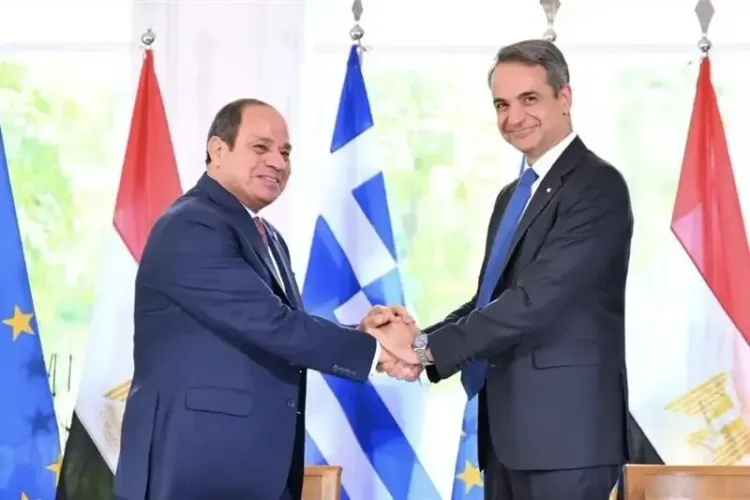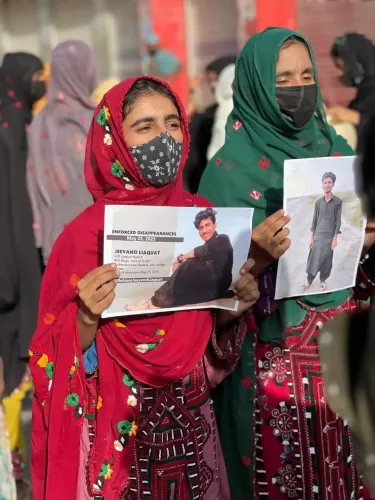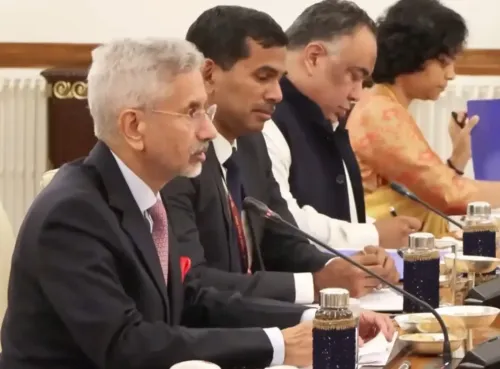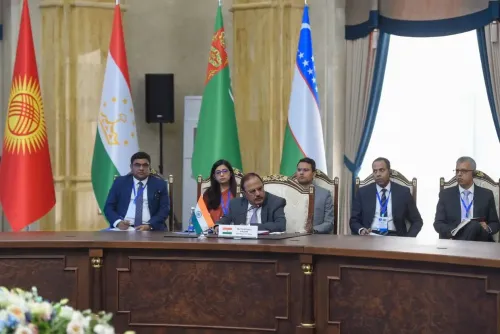Could Greece and Egypt's Strategic Agreement Ensure Regional Stability and Manage Migration?

Synopsis
Key Takeaways
- Greece and Egypt have signed a strategic partnership agreement.
- The focus is on migration cooperation and regional stability.
- Both countries aim to deepen bilateral ties across multiple sectors.
- Efforts are being made to address the ongoing Gaza conflict.
- The partnership emphasizes the need for coordinated responses to common challenges.
Athens, May 8 (NationPress) Greece and Egypt have formalized a strategic partnership agreement, primarily aimed at enhancing cooperation on migration management.
Both nations are committed to addressing regional challenges while strengthening their bilateral relations, as reported by Xinhua news agency.
During Egyptian President Abdel-Fattah al-Sisi's visit to Athens, the two nations vowed to work closely together on migration flow management.
Greek Prime Minister Kyriakos Mitsotakis stated during a joint press conference aired on Greek state broadcaster ERT, "It should not be traffickers who dictate who enters the European Union (EU); that responsibility must lie with European states in collaboration with friendly nations like Egypt."
Since 2015, Greece has been a frontline entry point for irregular migrants and refugees seeking to enter the EU.
On the other hand, Egypt has effectively curbed irregular migration from its shores since 2016, as President Sisi highlighted during a separate meeting with Greek President Constantine Tassoulas.
"We do not want to create issues for our European allies. While we advocate for tackling illegal migration, there needs to be coordination for legal migration as well," Sisi remarked, as quoted by Greece's national news agency AMNA.
The ongoing conflict in the Gaza Strip was also a significant topic of discussion.
Mitsotakis expressed strong endorsement of Egypt's role in the Arab reconstruction initiative for Gaza, describing it as a "realistic foundation for future dialogue."
"The immediate priority is to halt hostilities and restore humanitarian aid to the affected civilians," Mitsotakis stated in joint remarks with Sisi.
Apart from migration and regional stability, Mitsotakis and Sisi reaffirmed their dedication to expanding cooperation in various sectors, including trade, economy, shipping, energy, infrastructure, agriculture, tourism, culture, and education.
Mitsotakis emphasized, "There are robust foundations for Greece and Egypt to work together in a coordinated approach to address shared challenges."
The two leaders also touched on the East Mediterranean Gas Forum, recent developments in the Eastern Mediterranean, and the trilateral cooperation mechanism involving Egypt, Greece, and Cyprus.
El-Sisi expressed gratitude for ongoing efforts aimed at de-escalating tensions in the region.
He stressed the importance of leveraging these positive initiatives to resolve existing disputes and ensure that the region's natural resources benefit its inhabitants.
Mitsotakis concurred with El-Sisi, labeling the maritime border demarcation agreement between the two nations as "ideal."
Furthermore, El-Sisi commended Greece for its support within the EU, especially during challenging times.









